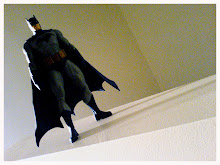
I thoroughly enjoyed being at Foothills Camp yesterday for the annual Native Outreach Summit that was organized by the Adventist Development and Relief Agency (ADRA). ADRA Canada’s vision is a world without poverty. They are heavily involved in relief work around the globe and are visibly present in many of the world’s disaster areas. At this summit their focus was to educate us on the history, cultural characteristics, and needs of the Aboriginal people of North America.
The history of the Aboriginal people of North America is truly devastating. The world often looks to the Jewish Holocaust as being one of man’s darkest hour but Native people of this continent, have been suffering from a similar form of genocide since the 1800s. This is a people who have been stripped of all human dignity, self worth, and both individual and national identity over the centuries. The measures, by which the Canadian government took care of the “Indian Problem” during the early years, were simply wrong and yet it is only now that they are trying to rectify their mistakes.
However, there are leaders within the Native American community, who have made it their personal battle to preserve their culture, heal the wounds within themselves, embrace and forgive their tormentors, and educate their brothers and sisters to build a brighter future for Aboriginals. Several members at the summit presented beautiful aspects of their culture and patiently took question from the curious audience that served to enlighten us on many of their issues.
I met a native elder named Ruby while eating supper. She had impressed me with her story that she related to all present earlier in the day. She was a survivor of the residential school system used to forcibly integrate Native children into North American society by removing them from their homes and putting them into military style schools that made it their mandate to strip them of their culture and lifestyle. These children were beaten if they were even to speak in their Native language and were often sexually molested by their teachers.

Ruby also spoke on the years of therapy she had gone through to learn how to deal with her inner demons and also how she had worked hard on learning how to forgive. She candidly reflected on her fear of intimacy especially that which was expressed physically. Later I was surprised when she sat beside me at the supper table and I wasn’t sure how things would go. But soon we were laughing and sharing stories about her 11 grandchildren as well as sharing irreverent Native humor. I remember thinking there was such wisdom in her smile and the words she carefully spoke.

I brought my saxophone out and I was soon jamming with a group of cowboys playing Country and Bluegrass hymns. I learned that jazz riffs work well with the twangy quality of their music. I was gratified when a few of the Native elders approached me and praised me for "my skill with the horn." Ruby sat silently taking it all in with stoic grin on her face that apparently meant she was enjoying herself. Denise, married to one of the cowboy guitar players, was amazing on the bass guitar. I stood beside her as she set the groove for the rest of us.
In the the end I learned that the value of community runs deep within the Native cultures. Music was one of the avenues through which the bond between brother and sister was strengthened. Anyone was welcome to play and by playing you joined the family.
It felt good to be one with "The People".








No comments:
Post a Comment